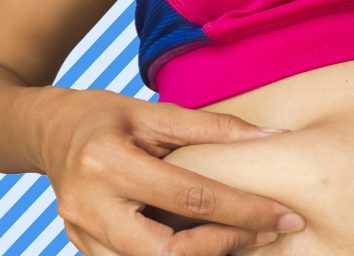Ingredients for Salad Dressing That Will Help You Lose Weight
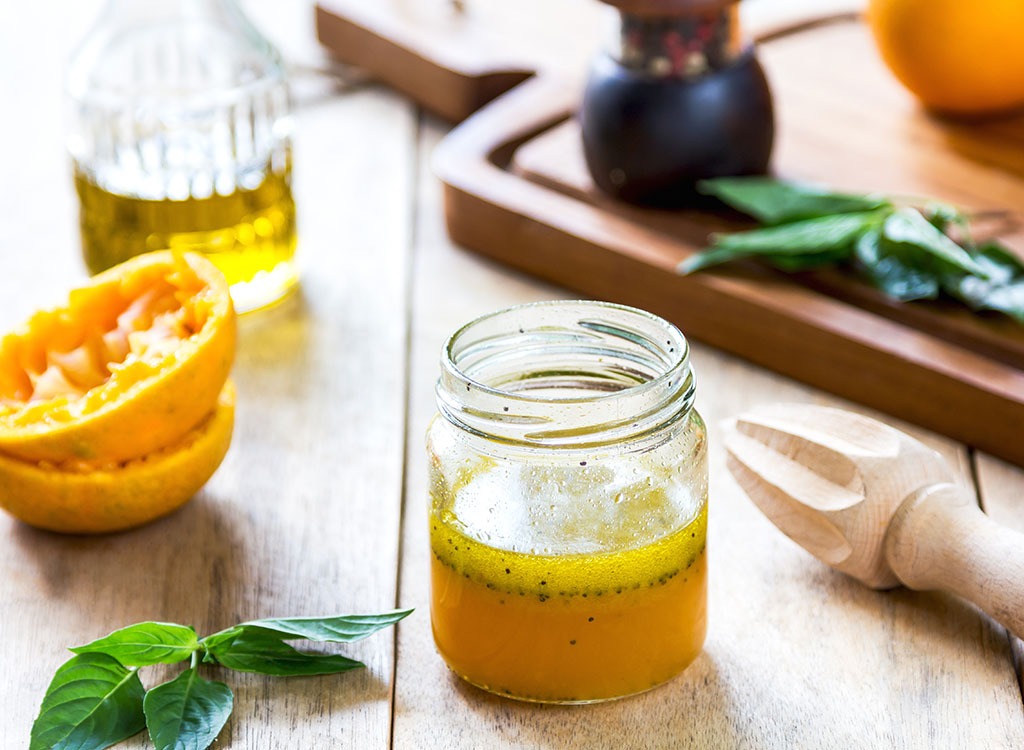
In fact, if you’re serious about losing weight, you’d be wise to rid your fridge — and your diet — of the bottled stuff altogether. That’s because most store-bought dressings, even the fancy ones, contain ingredients like corn syrup and vegetable oils proven to contribute to weight gain — even drizzled on a plate piled high with weight loss foods. Shaking up a jar of your own salad dressing made from real, all-natural ingredients can be just as convenient — and infinitely kinder on your waistline.
Skip the meanie in a bottle and consider adding one, or all, of these fat-burning ingredients to your favorite salad dressing recipe:
Extra Virgin Olive Oil

It sounds counterintuitive: add fat to lose fat. But in fact, research shows that adding a little bit of fat to your salad maximizes the body’s ability to absorb the fat-burning nutrients. Oils that are rich in monounsaturated and oleic fatty acids like olive and avocado oil are the most effective, and may even help to spot reduce belly fat by down-regulating the expression of certain fat genes. A recent Penn State study found people who consumed 40 grams (about 3 tablespoons) of high-oleic oils on a daily basis for four weeks lowered their abdominal fat by 1.6 percent compared to those who consumed a flax/safflower oil blend, which is comparatively high in polyunsaturated fat.
Eat This! Tip: When shopping for EVOO, go Greek! Scientists found Koroneiki olives from Greece have the highest content of health-boosting polyphenols, while Arbequina’s olives, cultivated in Spain and California, have the lowest.
Apple Cider Vinegar

A salad dressing isn’t a salad dressing without acid, and the best source may be apple cider vinegar. This variety is rich in acetic acid, a compound that speeds up fat burning and prevents fat storing by interfering with the body’s ability to digest starch. People who ate bread with vinegar reported feeling fuller than a bread-only group, and had significantly lower post-meal blood glucose levels, one study published in the European Journal of Clinical Nutrition found. And a second study conducted by researchers in Japan showed that laboratory mice fed a high-fat diet and given acetic acid developed significantly less body fat (up to 10 percent less) than other mice on the same diet.
Eat This! Tip: One of the notable health benefits of apple cider vinegar — the raw, unfiltered kind — is its rich fat-burning pectin and probiotics content. But you don’t have to limit yourself to ACV. All vinegars contain acetic acid; just look for one whose label says 5% acidity, which is what you’ll find in most cooking and salad vinegars.
Garlic
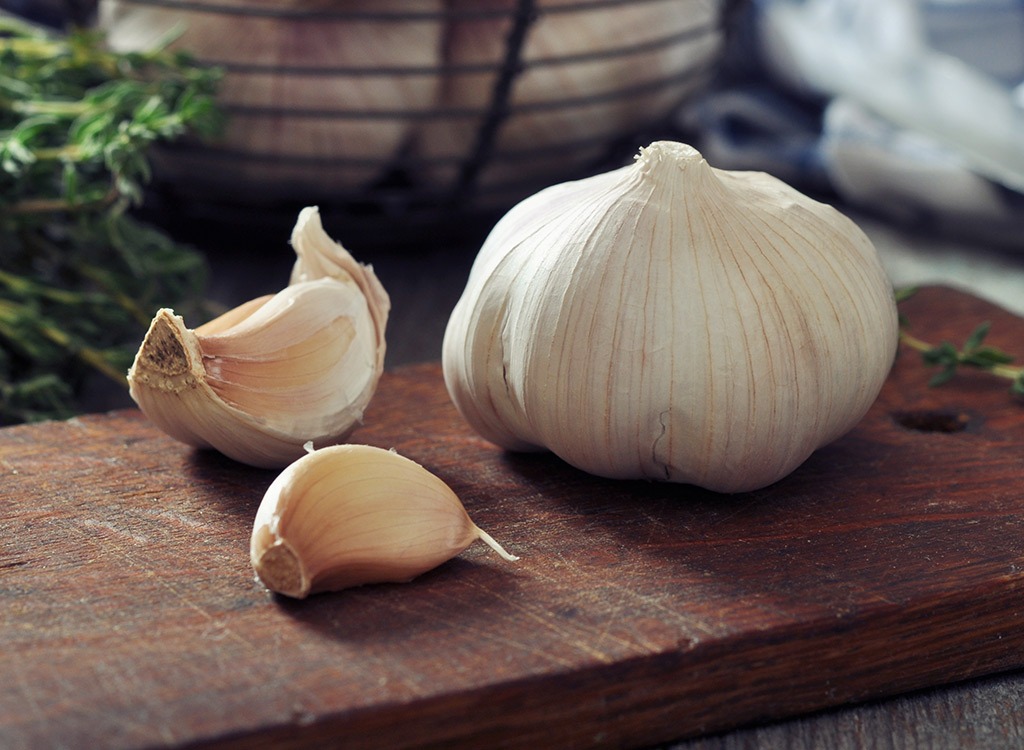
Sure you may want to skip the garlic the night of a big date, but studies suggest that allicin — the same compound that makes the stinking rose a wicked breath-killer — may also be a wicked fat-burner. One study among postmenopausal women — a group already at risk for a slowed metabolism — found supplementing with garlic extract significantly accelerated the reduction of both body weight and body fat. Rats fed high-fat diet had less fatty tissue and improved blood lipid profiles when given a daily dose of garlic as compared to a control group on the same diet another study found. Scientists attribute the waist-whittling effects to garlic’s ability to essentially “turn off” genes involved in storing fat.
Eat This! Tip: Dried garlic powder provides some of the health benefits, but nothing beats the bulb. Peel and mince your own; bear in mind that the finer you chop, the stronger the flavor.
Ginger
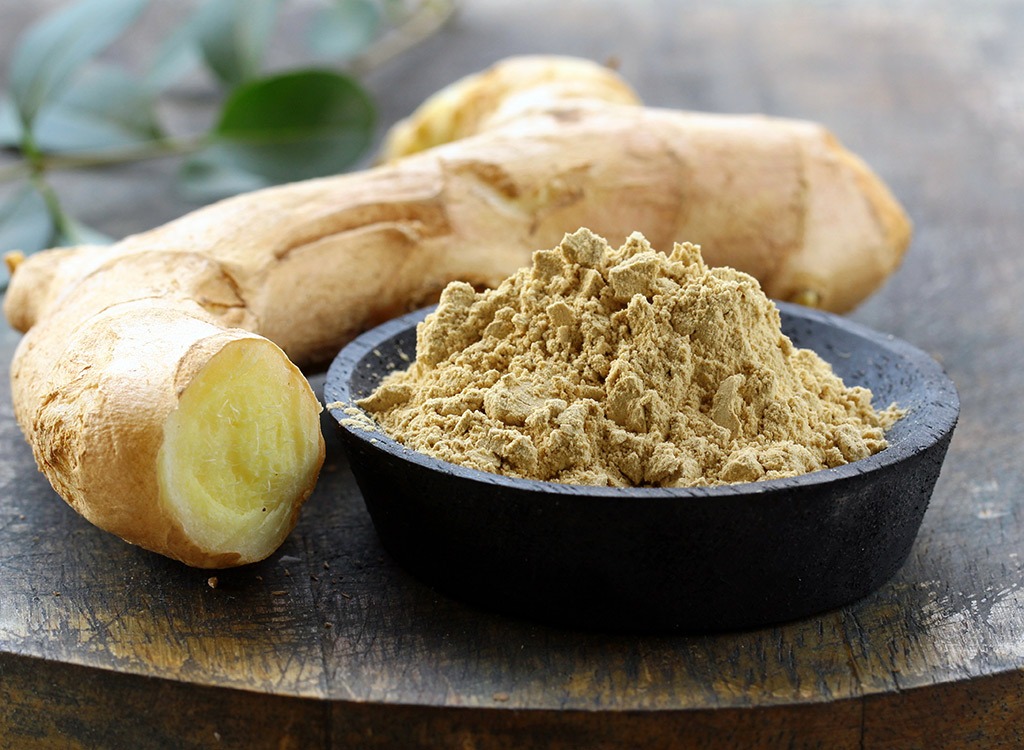
Used for thousands of years to tame troubled tummies and aid digestion, ginger is mentioned in medical texts from as early as the fourth century BC! Today’s researchers are discovering incredible fat loss potential in the pungent spice as both a metabolism booster and appetite suppressant. Men who added ginger to a meal felt satisfied for up to 6 hours afterwards; moreover, they burned nearly 50 calories more than a control group, a study published in the journal Metabolism showed. Give your salad Asian flair with a clean and bright carrot-ginger dressing.
Eat This! Tip: Fresh ginger is richest in gingerol, the compound that contributes to many of the spice’s health benefits. But when buying the dried spice, researchers say you’ll get the most gingerol from organic varieties.
Coconut Sugar
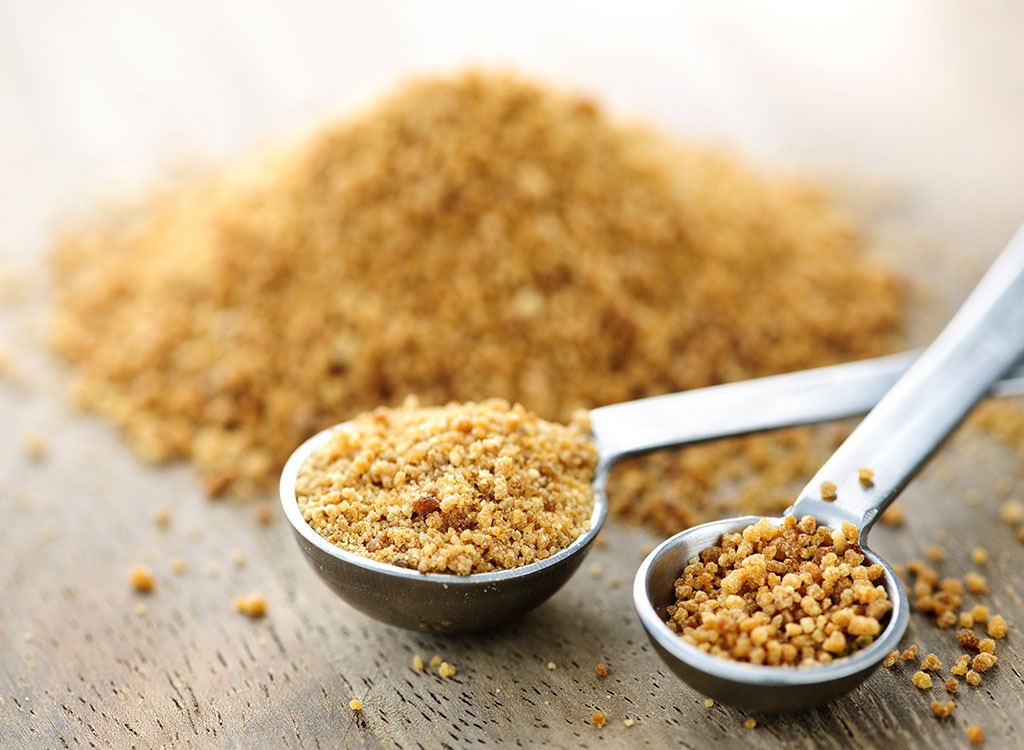
Ask any chef: The most delicious salad dressings have a perfect balance of sweet and sour, or agrodolce as the Italians call it. There are a number of ways to round out the acidity of your dressing — brown sugar, honey, agave to name a few — but coconut sugar may be the most diet-friendly option. Unlike the granulated stuff, only 78 percent of palm sugar is actually sugar; the remaining 22 percent comes from nutrients like zinc, iron and inulin, a type of insoluble fiber that slows down the digestion and absorption and prevents blood sugar spikes associated with fat gain.
Eat This! Tip: While coconut sugar is marketed as a “low GI sweetener,” it’s still sugar: caloric and potentially fattening. So approach this salad dressing ingredient with caution — and a measuring spoon.
Mustard

Add a teaspoon of mustard to your dressing, and feel the burn—literally! Scientists at England’s Oxford Polytechnic Institute found that by eating one teaspoon of mustard — which will cost you a paltry 5 calories — can boost the metabolism by up to 25 percent for several hours after eating. The benefits, researchers say, may be attributed to capsaicin and allyl isothiocyanates, phytochemicals that give the mustard its characteristic flavor.
Eat This! Tip: Be sure you’re heating things up with a pure and low-calorie variety of mustard. That means avoiding anything that’s neon yellow or loaded with sweeteners.
Hot Sauce
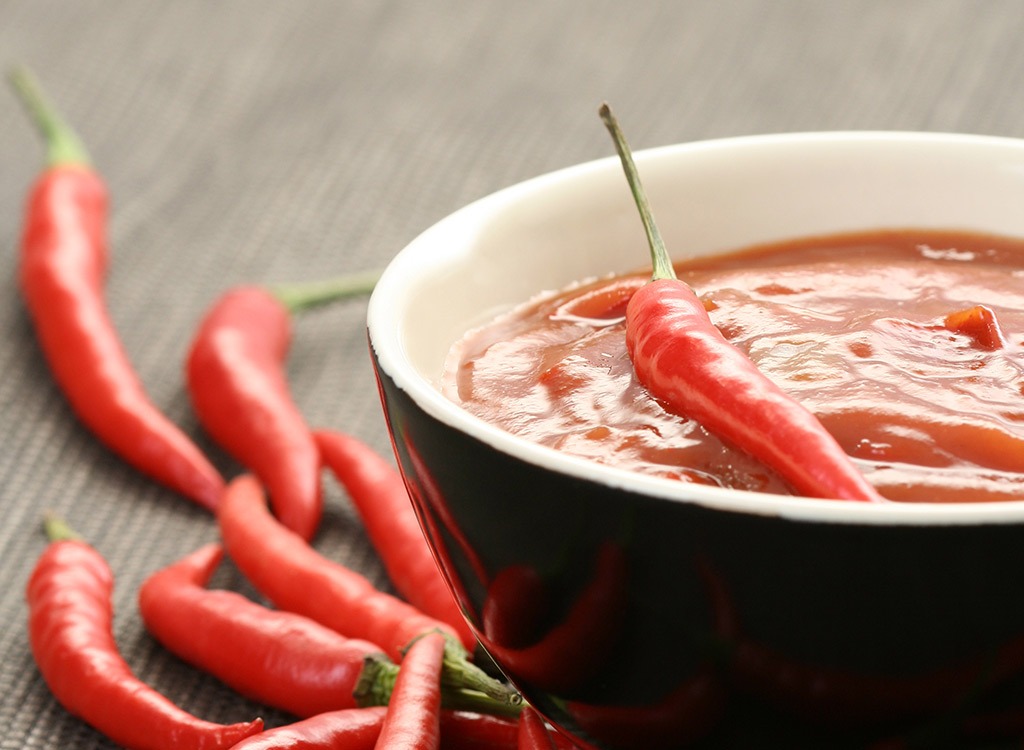
Give your favorite homemade dressing a kick with a few shakes of hot sauce. The fiery condiment is rich in capsaicin, a compound that’s proven to suppress appetite and boost thermogenesis—the body’s ability to burn fat as energy. A well-cited study by Canadian researchers found that when men ate appetizers with hot sauce (0 calories per teaspoon), they ate about 200 fewer calories at later meals than those that did not. Couple that finding with research out of Penn State that suggests eating a low-cal appetizer like a simple green salad can reduce total calorie intake over the course of the meal by up to 20 percent, and you’re looking at the smartest starter salad on the planet.
Eat This! Tip: Be sure to check sodium counts first. Just a few shakes of some popular varieties can provide nearly 20% of your recommended daily limit.
Eat This!
If you can’t bear the thought of breaking up with the bottle, at least choose these healthy, store-bought salad dressing options.
